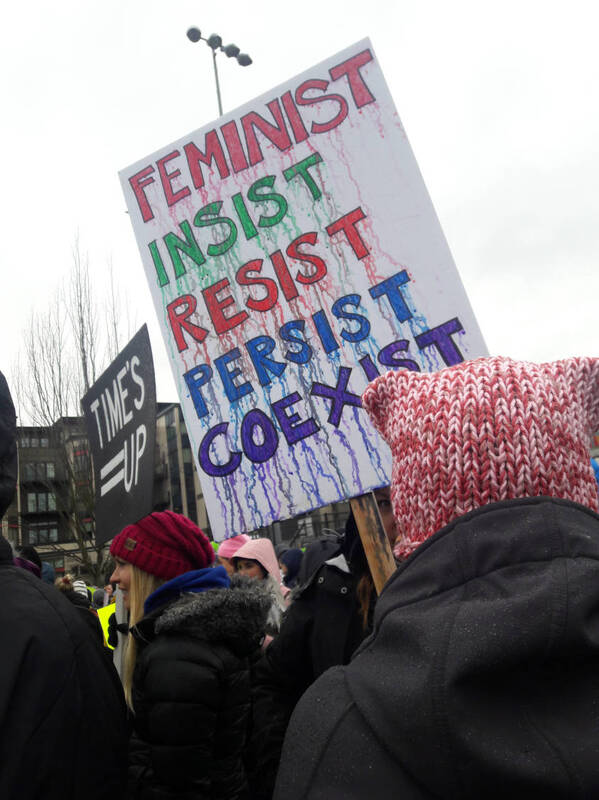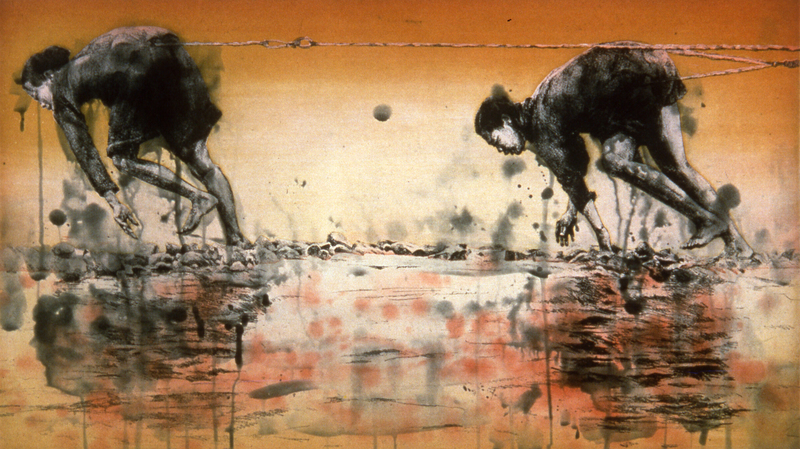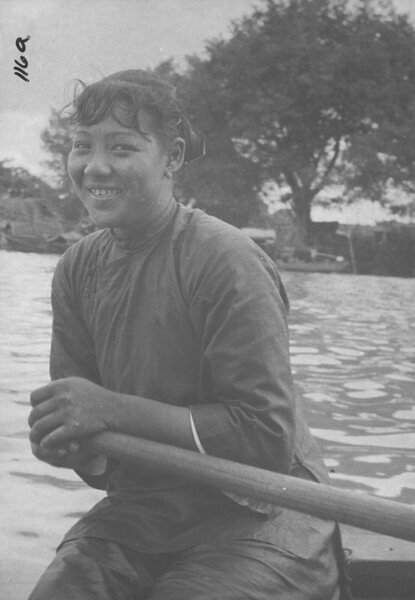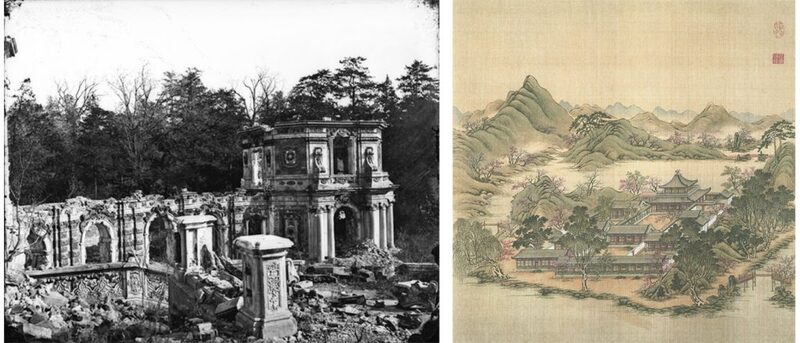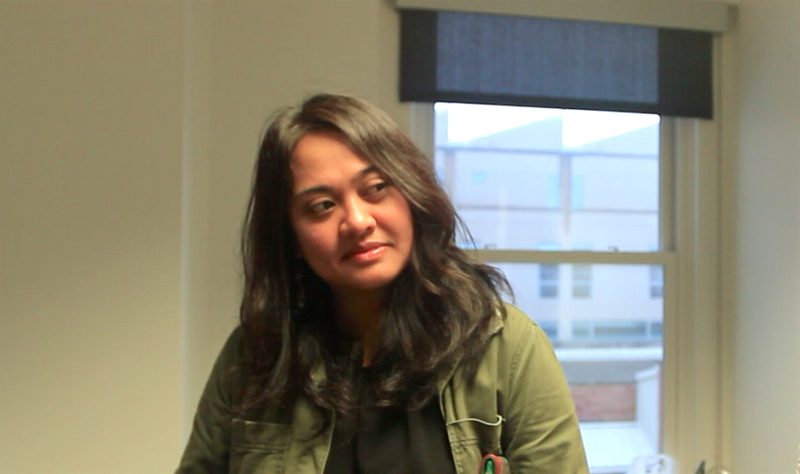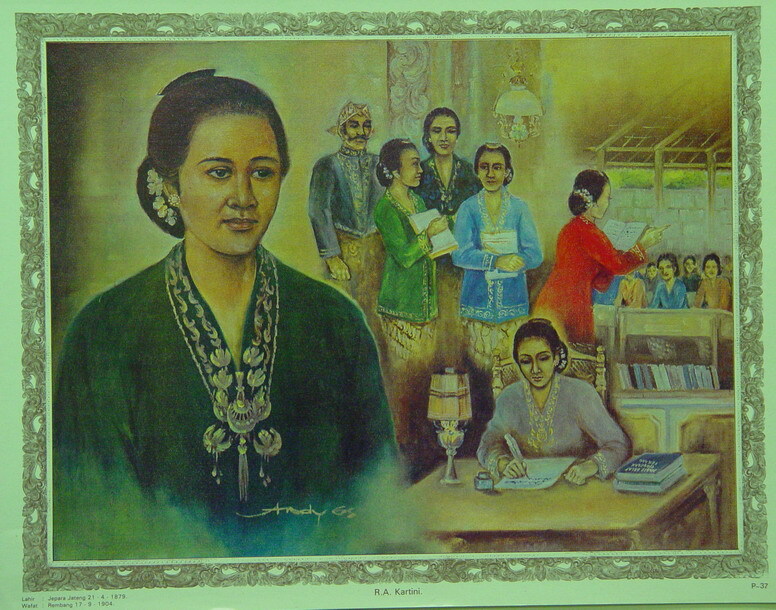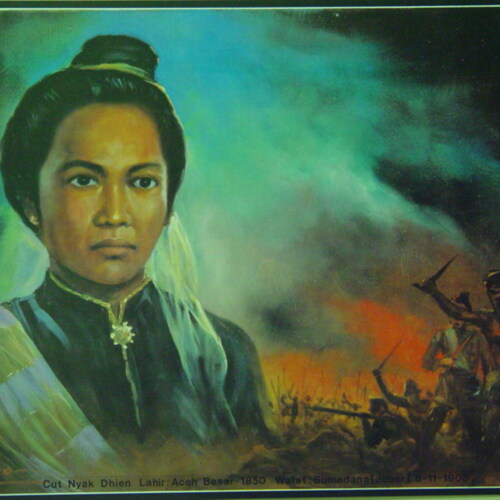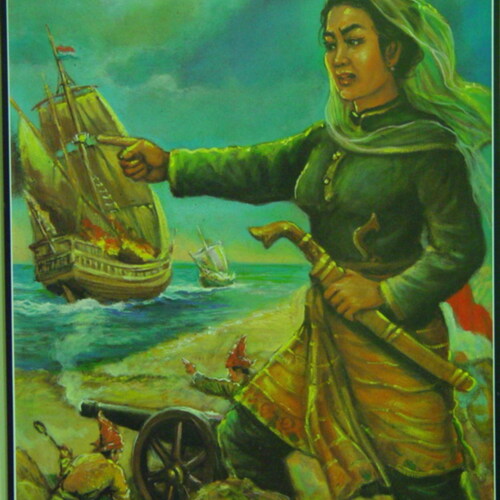Women in Southeast Asia and Feminism
By: Marissa Le and Alina Luy
We created this exhibit to bring to light what women did in Southeast Asia and how it relates to feminism. Understanding this concept is important for many reasons such as recognizing the struggles and experiences of women in Southeast Asia helps to foster solidarity among feminists across the globe. It acknowledges that the fight for gender equality is a universal struggle and that women in different parts of the world face similar challenges. Examining the experiences of women in Southeast Asia also highlights the intersectionality of feminist struggles. Women in the region often face multiple forms of oppression, including those based on their race, ethnicity, religion, or socioeconomic status. Studying the actions and experiences of women in Southeast Asia can provide valuable insights into different feminist strategies, tactics, and movements. It can also help to challenge ethnocentric or Western-centric views of feminism and broaden our understanding of the diversity of feminist thought and activism around the world.
--------------------------------------------------------------------------------------------------------------------------------------------------------------
The "Feminist Insist Resist Persist Coexist" sign displayed at the 2018 Women's March in Seattle, WA, calls for feminist action and solidarity. "Insist" demands gender equality and women's rights. "Resist" challenges patriarchal structures perpetuating inequality and oppression. "Persist" emphasizes determination to continue the fight for equality. "Coexist" promotes inclusivity and respect for diversity. The sign represents strength and unity in the ongoing struggle for women's rights.
Hung Liu's "Yellow River" painting is a large-scale work of art that explores the cultural significance and history of China's Yellow River. The painting is based on a photograph taken during the Chinese Communist Revolution, depicting people crossing the river in a chaotic and turbulent moment. The painting uses traditional Chinese techniques and Western brushwork, dominated by a deep yellow color representing the river. People in the painting are depicted in different states of movement and emotion, capturing the desperation and resilience of the Chinese people during this period. The painting celebrates the enduring cultural heritage of the Chinese people, despite political upheaval. Overall, "Yellow River" is a powerful testament to the complex emotions and experiences of the human experience through the power of art.
Female migrant workers in China's Pearl River Delta region have traditionally worked in labor-intensive industries, such as manufacturing, textiles, and electronics. These women migrate from rural areas to urban areas in search of better economic opportunities and often work long hours, with few breaks or days off, for low pay. Poor working conditions, including inadequate ventilation and safety equipment, are common. Some also work in the service sector, facing similar challenges, including isolation. Despite these difficulties, female migrant workers have found ways to support themselves and their families, including forming support groups and seeking out training opportunities. Their contributions to China's economy are significant, but their challenges highlight the need for greater protections and support for vulnerable workers.
The Asia Art Archive in America's 2022 Leadership Camp "(Im)material Ruins" explores the relationship between art, culture, and the built environment. The program brings together emerging leaders in the field to discuss architectural heritage, urban renewal, and cultural preservation. It also highlights the role of women in cultural preservation and aims to inspire and empower women in Southeast Asia to preserve their heritage and pursue creative pursuits.
Azza Basarudin is a scholar and activist promoting gender equality and social justice in Southeast Asia. She's a professor at the University of Massachusetts Amherst and has published extensively on gender, Islam, and activism. She highlights the diversity of Muslim communities in Southeast Asia and advocates for policies promoting gender equality and women's empowerment. She has also worked with NGOs to provide education and support for marginalized women.
The exhibition in this venue goes beyond a poster image to depict Raden Ajeng Kartini, an influential figure who dedicated her life to advocating for women’s rights and education in Indonesia. Kartini was inspired by both Islamic and Dutch feminist movements and corresponded with her Dutch friend Stella Zeehandelaar about the treatment of women in Java. Her letters, published in the Netherlands and translated into English, focused on women’s education and equal rights in marriage, became the primary agenda for women’s movements across Indonesia. Kartini’s writings served as a counter to societal attitudes and cultural practices, leading to the establishment of Kartini’s schools and higher achievements for women’s emancipation. Indonesians celebrate her birthday on April 21 as a symbolization of women’s struggle for equality.
Cut Nyak Dhien, a national hero in Indonesia, led Acehnese guerilla forces during the Aceh War after her husband’s death. Despite limited resources, she and other widows of male nationalist leaders assumed powerful positions and led the resistance movement in Sumatra’s jungle for 25 years. She was arrested in 1905 and the Dutch exiled her over fears of leading more Acehnese resistance, where she died a few years later. Cut Nyak Dhien’s unwavering devotion and refusal to surrender made her a symbol of pride for Indonesian women. She is celebrated in Indonesian history and culture, with her image on postage stamps.
The actions and experiences of women in Southeast Asia have a direct and significant relationship to feminism. Feminism is a movement that advocates for gender equality and seeks to address and eliminate gender-based discrimination, oppression, and inequality. Women in Southeast Asia have historically faced various forms of gender-based discrimination and oppression, such as limited access to education, economic opportunities, and political power. Feminism seeks to address these issues by challenging and changing the societal norms and structures that perpetuate these inequalities. Many women in Southeast Asia have been actively involved in feminist movements, advocating for their rights and working to change the patriarchal and oppressive systems in their societies. Southeast Asian women have been active in the labor movement, fighting for better working conditions and wages, and in environmental and social justice movements, advocating for the rights of marginalized communities. Overall, the actions and experiences of women in Southeast Asia have played a crucial role in the development of feminist movements in the region and have contributed to the global feminist movement.
--------------------------------------------------------------------------------------------------------------------------------------------------------------
References
116a. sampan rower, Pearl River. Omeka RSS. (n.d.). Retrieved March 6, 2023, from https://digital.library.manoa.hawaii.edu/items/show/32300#?c=0&m=0&s=0&cv=0&xywh=-399%2C-1%2C1350%2C800
Asia Art Archivein America. Asia Art Archive in America's 2022 Leadership Camp: (Im)material Ruins • Asia Art Archive in America. (n.d.). Retrieved March 6, 2023, from https://wayback.archive-it.org/6712/20220602123708/https://www.aaa-a.org/programs/asia-art-archive-in-americas-2022-leadership-camp-immaterial-ruins
Cut Nyak Dhien. Omeka RSS. (n.d.). Retrieved March 6, 2023, from https://digital.library.manoa.hawaii.edu/items/show/23819#?c=0&m=0&s=0&cv=0&xywh=-24%2C0%2C806%2C560
Cut Nyak Dhien. Omeka RSS. (n.d.). Retrieved March 6, 2023, from https://digital.library.manoa.hawaii.edu/items/show/23820#?c=0&m=0&s=0&cv=0&xywh=-330%2C-3%2C1221%2C849
Feminist freedom warriors. Feminist Freedom Warriors. (n.d.). Retrieved March 6, 2023, from http://feministfreedomwarriors.org/watchvideo.php?firstname=Azza&lastname=Basarudin
"feminist insist resist persist coexist" sign at the women's March 2018, Seattle, Washington. cdm16786.contentdm.oclc.org. (n.d.). Retrieved March 6, 2023, from https://cdm16786.contentdm.oclc.org/digital/collection/p16786coll12/id/442/rec/3
GenderWatch® - ProQuest. (n.d.). Retrieved March 6, 2023, from https://about.proquest.com/en/products-services/genderwatch/
Hung Liu: Artist profile. NMWA. (2021, August 10). Retrieved March 6, 2023, from https://nmwa.org/art/artists/hung-liu/
Mutaqin, Z. Z. (2018). Culture, Islamic feminism, and the quest for legal reform in Indonesia. Asian Journal of Women's Studies, 24(4), 423-445. https://doi.org/10.1080/12259276.2018.1524549
Polk, W. R. (2019). The Aceh War and Dutch Imperialism. In Crusade and Jihad (pp. 145–151). Yale University Press. https://doi.org/10.12987/9780300231908-017
R.A. Kartini. Omeka RSS. (n.d.). Retrieved March 6, 2023, from https://digital.library.manoa.hawaii.edu/items/show/23860#?c=0&m=0&s=0&cv=0&xywh=285%2C56%2C376%2C272
Siapno, J. A. (2002). Gender, Islam, Nationalism and the State in Aceh : The Paradox of Power, Co-Optation and Resistance. Taylor & Francis Group.
About the Curators
Marissa Le (she/her): An Asian American who studies at the University of Washington Bothell. Majoring in Business with a concentration in Finance. New to the Gender, Women, and Sexuality Studies. A feminist.
Alina Luy (she/her): An Asian American woman studying at the University of Washington Bothell. Majoring in Business with a concentration in Marketing. New to the Gender, Women, and Sexuality Studies. A feminist.
--------------------------------------------------------------------------------------------------------------------------------------------------------------
Acknowledgements
- Tessa Denton (she/her): Undergraduate Teaching Assistant
- Denise Hattwig (she/her): Head of Digital Scholarship, UWB Library
- Penelope Wood (they/them): Research & Instruction librarian, Gender, Women, and Sexuality Studies & Engineering
- Dr. Julie Shayne (she/her): Faculty Co-cordinator: Gender, Women & Sexuality Studies
